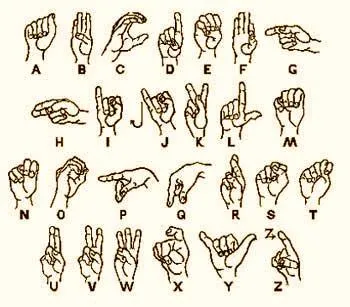Video relay brings hearing impaired into digital communications

Last week, Speed Matters reported on an organizing success for members of American Sign Language Interpreters United, a unit of the Pacific Media Workers Guild. The unit is part of TNG-CWA Local 39521 and workers there recently ratified their first contract with Purple Communications.
This week, FCC Chairman Tom Wheeler used his blog to call attention to the vast world of sign language interpreters, and to explain why the country needs more public and private investment in this little-known, but widely used, service.
As Wheeler explained, when as a deaf or hard-of-hearing person calls “... you call a hearing person who does not speak your language, the call is automatically routed over the Internet through a VRS (video relay service) sign language interpreter who conveys what you want to communicate to the hearing person. The VRS interpreter voices everything you sign to the hearing person and signs back everything that the hearing person says.”
And it happens constantly. According to Wheeler, “One hundred and twenty-five million minutes of these three-way calls took place last year between deaf and hearing persons. Calls most of us take for granted. Routine calls, work calls, calls to friends and family, calls to government offices, to businesses. And calls to 911.”
However, even with that volume of calls, said Wheeler, “Most federal agencies, for instance, don’t have direct video access for those who communicate in ASL (American Sign Language). Neither do most companies.”
The FCC has been pushing government agencies to emulate the success of the commission’s own ASL Consumer Support Line.
As Wheeler urges, “Based on the success at the FCC and the advance of technology, it is now time to expand direct video calling beyond the FCC and make it available to all levels of government and companies who answer consumer inquiries. As the federal agency responsible for the communications of all Americans, the FCC is embarking on a year-long, two-part process to expand direct video connectivity for deaf, hard of hearing, and speech disabled individuals who communicate in ASL.”
Speed Matters applauds Chairman Wheeler for highlighting the important work that video relay service interpreters do and all the agencies and individuals who are working to make all deaf and hard-of-hearing people fully integrated into our public and private sectors.
First Contract at Purple Communications (Speed Matters, Mar. 26, 2015)
Direct Video Communication: Access for People who are Deaf, Hard of Hearing and Speech Disabled in an IP World (Wheeler FCC blog, Apr. 14, 2015)
CWA members oppose AT&T’s attempts to stop serving rural and low-income communities in California
CWA urges FCC to deny industry attempts to loosen pole attachment standards
CWA District 6 reaches agreement with AT&T Mobility



